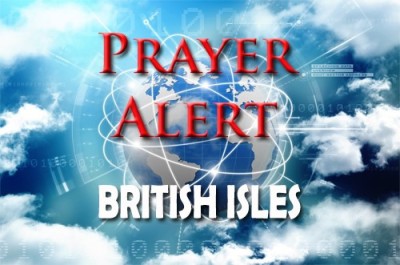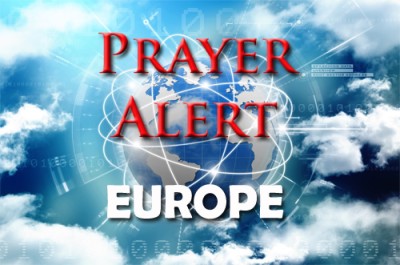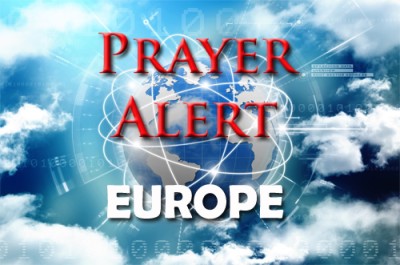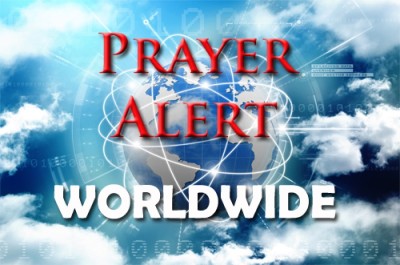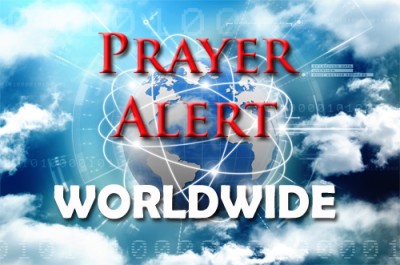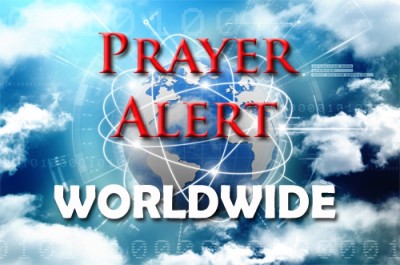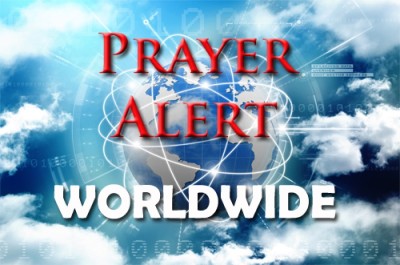Minehead is mourning the loss of a 10-year-old boy after a tragic school bus crash injured several others. The bus, carrying over 60 students and staff, veered off the road while returning from a trip to the zoo. Churches in the town have responded swiftly, offering prayer, pastoral care, and safe spaces for grieving. Tommy Pratt, a trainee minister at Minehead Baptist Church, described the incident’s deep impact on the close-knit community. Church members with ties to the school were among those affected, and many locals are still 'processing' the shock. Churches across denominations are coordinating efforts to support families, school staff, and medical workers. The Hub café has opened its doors for prayer and conversation, and churches are preparing Sunday services with space for lament and reflection. A GoFundMe appeal has raised over £15,000 for affected families. Amid sorrow, the community’s unified and compassionate response has become a source of strength. Church leaders are praying for God’s peace, healing, and comfort during this time of collective grief.
Ukraine: new peace talks, says Zelensky
25 Jul 2025Volodymyr Zelensky has announced that Ukraine and Russia will engage in another round of talks on 23 July in Turkey. This comes at a time of intensified Russian drone attacks and continued escalation in the long-running conflict, now in its fourth year. While earlier talks have led to prisoner exchanges, little progress has been made toward achieving a lasting peace. Russia’s conditions for ending the war include Ukraine’s full withdrawal from the regions of the country now occupied by Russia, and international recognition of territories it has claimed since 2014, including Crimea. Ukraine, on the other hand, seeks a ceasefire, restoration of its borders (to 2013), return of all abducted children, release of civilians, and the exchange of prisoners of war. Donald Trump has voiced support for increased sanctions on Russia to pressure a resolution, urging both sides to reach an agreement swiftly. The world watches closely as diplomatic efforts resume amid deep divisions and ongoing violence.
Several French cities have introduced night-time curfews for minors in response to escalating violence linked to drug trafficking. In Nîmes, where recent shootings and a brutal murder have shaken residents, authorities have imposed a 9pm–6am curfew for under-16s to shield children from violence and criminal exploitation. Mayor Jean-Paul Fournier described the situation as 'untenable,' blaming drug gangs for fostering a climate of fear. Other cities, including Béziers and Limoges, have implemented similar curfews. However, officials admit enforcement is challenging, with continued youth disturbances and attacks on police undermining their effectiveness. In Béziers, youths recently ambushed officers with fireworks, and Limoges saw unrest involving 100 people. The violence highlights a growing trend of gang activity spreading beyond Marseille, France’s drug crime epicentre. In 2024, drug-related violence claimed 110 lives and wounded over 300. The government is responding with tougher laws, high-security prisons, and expanded investigative powers, but community leaders warn that more than policing is needed to protect young lives and restore peace.
A tragic accident occurred in Dhaka when a military training jet crashed into Milestone School and College, killing at least twenty people and injuring more than 186. The F-7 aircraft, which had just taken off for a training mission, experienced a mechanical fault and struck a two-storey school building, igniting a massive fire. Many of the victims were children, with seventeen confirmed dead and dozens more suffering critical burns. Witnesses, including students and teachers, described scenes of horror and devastation as the crash unfolded during school dismissal. Emergency services rushed to the site, with seven hospitals treating victims, most of them aged between 10 and 15 and suffering from fuel burns. Families frantically sought loved ones, and many volunteers offered to donate blood. The pilot, who died in the crash, reportedly tried to divert the aircraft away from populated areas. The government has launched an investigation and declared a national day of mourning.
Pastor Khalid Mezher, leader of the Good Shepherd Evangelical Church in Suwayda, Syria, was murdered alongside around 20 members of his extended family in what church leaders are calling a targeted massacre. A convert from the Druze faith, Mezher was known for his bold Christian witness in a region torn by conflict. His murder occurred amid escalating violence between Bedouin fighters and Druze militias, with over 250 reported dead in one week. Suwayda has been under siege for 10 days with no food, water, or electricity. Church sources say Mezher was 'killed for his faith,' and many believers remain missing or cut off. Despite a U.S.-brokered ceasefire, shelling continues. Christian leaders across Syria have condemned the killings and appealed for urgent international aid. Government forces have shifted roles in the conflict, but humanitarian access remains limited. Mezher’s martyrdom has shaken the remnant Christian community in southern Syria, as calls for global prayer and intervention grow. The church in Suwayda now stands scattered, its future uncertain. See
Japan: prime minister expected to resign
25 Jul 2025Japan’s prime minister, Shigeru Ishiba, is expected to resign following a major electoral defeat that saw his Liberal Democratic Party (LDP) lose its coalition majority in the upper house. Ishiba, who has held office for less than a year, has struggled with waning public support and the rise of nationalist parties like Sanseito, which campaigned on a 'Japanese first' platform. The LDP has faced increasing pressure over issues such as inflation, a shrinking workforce, and growing immigration concerns - areas populist groups have capitalised on. Despite initially pledging to remain in office, Ishiba is now consulting former prime ministers about his future. He is also pursuing a controversial $550 billion trade deal with the United States that would lower tariffs on Japanese goods in exchange for greater U.S. market access. While the proposed deal has economic significance, Ishiba’s political fate appears sealed. Observers warn that the shifting political landscape could steer Japan towards more nationalist policies if moderate leadership continues to weaken. see
Brazil: police raid ex-president’s home
25 Jul 2025Brazil’s supreme court has ordered strict sanctions on former president Jair Bolsonaro amid an ongoing criminal trial accusing him of plotting to overturn the 2022 election. Police raided his home and headquarters, fitted him with an electronic ankle tag, and imposed bans on foreign contacts, embassies, and social media use. The court cited flight risk concerns, though Bolsonaro denied any intention to flee, calling the measures a 'supreme humiliation.' The USA has reacted controversially, with Secretary of State Marco Rubio revoking visas for Brazilian justices involved, labelling the trial a 'political witch hunt.' Bolsonaro’s close ties with Donald Trump and claims of US interference have sparked a diplomatic storm. Allegations include collusion with the USA to impose retaliatory trade tariffs. Meanwhile, he could face over 40 years in prison if convicted of orchestrating a coup, with charges also implicating his son. As tensions rise, the situation highlights deepening global political entanglements and ongoing challenges to democratic accountability in Brazil.
Sudan’s war has entered a dangerous new phase, with fierce fighting erupting in the oil-rich Kordofan region. Control of Kordofan is strategic - it holds vital oil infrastructure and could shift the war’s trajectory. The army, led by Gen Abdel Fattah al-Burhan, is attempting to push out the Rapid Support Forces (RSF), commanded by Gen Mohamed 'Hemedti' Dagalo, who once supported al-Burhan before a violent split in 2023. Airstrikes by the army have killed dozens of civilians in towns like el-Fula and Abu Zabad, drawing condemnation from the UN. Meanwhile, the RSF has also been accused of massacres, with over 450 civilians, including children, killed in recent attacks. The conflict, now in its third year, has displaced 12 million and claimed 150,000 lives. Analysts warn the RSF's local tribal support could give them the upper hand in parts of Kordofan. Both sides are now locked in a deadly struggle over the region’s towns, oil fields, and supply routes. Humanitarian agencies are calling for urgent international action to stop the bloodshed.
